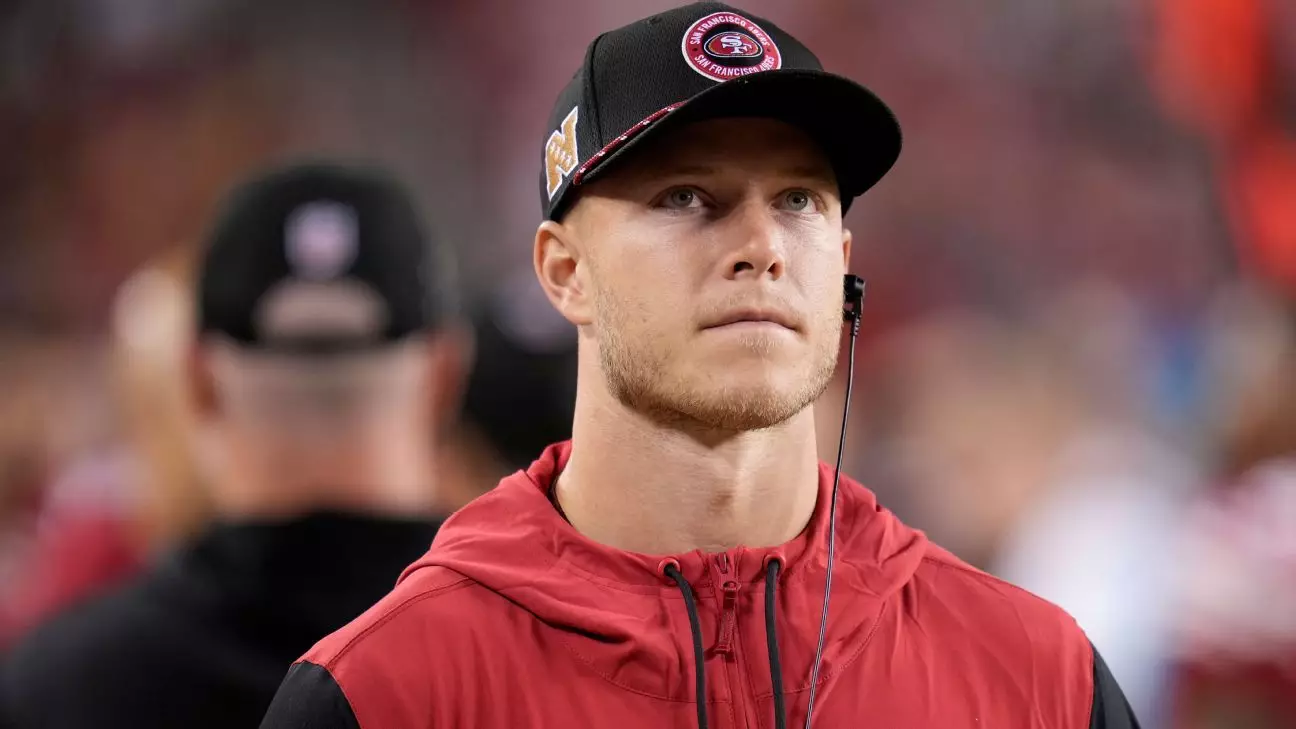The San Francisco 49ers are experiencing a significant challenge as they make the hard decision to place their star running back, Christian McCaffrey, on injured reserve due to calf soreness and Achilles tendinitis. This situation signifies a major shift for the 49ers as they prepare for an upcoming stretch of games without one of their key offensive players, marking a critical phase in their season.
When discussing McCaffrey’s health, it’s essential to recognize the unpredictable nature of his injuries. Coach Kyle Shanahan has highlighted the rollercoaster of McCaffrey’s condition, where moments of optimism are often overshadowed by sudden pain flare-ups. The announcement of McCaffrey’s stint on injured reserve follows a troubling period where he showed limited participation in practice, raising concerns about his ability to contribute to the team’s roster effectively. Shanahan described McCaffrey’s recent practice session as the worst, indicating that it was a pivotal moment prompting the decision to ultimately place him on IR.
While the immediate expectation is for McCaffrey to miss at least four games, including a critical matchup against the Minnesota Vikings, hope remains that he could return in time for the Oct. 10 showdown with the Seattle Seahawks. However, this potential return hinges on his physical recovery, showcasing the fine line teams must walk between managing a player’s immediate health and their long-term performance aspirations.
This absence is particularly disappointing not only for McCaffrey but also for the 49ers organization and their fan base, considering his accolades as the reigning NFL Offensive Player of the Year. Just days before the announcement, McCaffrey had expressed optimism about his playing status, reflecting both his competitive spirit and commitment to the team. His words resonate with fans, underlining the frustration athletes face when sidelined by injuries.
McCaffrey’s history of injuries—a series of setbacks during his tenure with the Carolina Panthers—elevates the narrative surrounding his health, suggesting that this may be an ongoing battle for him. From dealing with various injuries, including high ankle sprains and shoulder issues, it’s evident that maintaining peak physical condition remains crucial yet complicated for McCaffrey.
With McCaffrey unavailable, the onus now falls on Jordan Mason, who made his starting debut last week against the New York Jets. Mason’s performance was commendable, resulting in 28 carries for 147 yards and a touchdown, thus establishing a foundation for the 49ers’ ground game moving forward. Such a standout performance not only highlights his potential but also raises the stakes for him as he steps into a larger role amidst this adversity.
To further diversify their offensive approach, the 49ers may resort to utilizing players like Deebo Samuel as a backup option, which they have done previously. Samuel’s experience and versatility can help mitigate the absence of McCaffrey. Additionally, rookie Isaac Guerendo and fourth-year veteran Patrick Taylor Jr. are likely to see increased activity, showcasing the team’s depth at the position despite McCaffrey’s absence.
As the 49ers prepare to navigate this challenging phase, the turnover in their running back position illuminates broader issues confronting professional sports teams: the delicate balance between leveraging talent and managing player health. McCaffrey’s situation emphasizes the necessity for proactive health management within the high-stakes environment of the NFL. While the team will miss his explosive ability on the field, they now face the task of adapting to the new challenges posed by his absence, steeling themselves for the games ahead. The coming weeks will be a testament to the resilience of both the team and its supporting players to step up and compete effectively in McCaffrey’s absence.


Leave a Reply